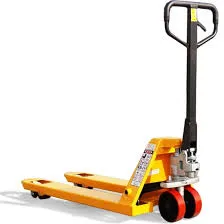


Hoist Scales for Sale A Comprehensive Guide
In industrial settings where heavy materials are frequently handled, the need for accurate measurement is paramount. Hoist scales provide a reliable solution for weighing loads suspended from cranes or hoists, making them an essential tool in various industries, including manufacturing, logistics, shipping, and construction. If you are considering purchasing hoist scales, understanding their advantages, types, and what to look for when shopping can significantly enhance your purchasing decision.
What are Hoist Scales?
Hoist scales, also known as overhead scales or crane scales, are devices designed to determine the weight of suspended items. They are typically used in conjunction with cranes, hoists, or slings, allowing operators to weigh loads easily and accurately while they are in the air. These scales come in various designs and capacities to accommodate different types of lifting equipment and weights.
Advantages of Using Hoist Scales
1. Enhanced Accuracy Hoist scales offer precise weight measurements, which are crucial for ensuring that loads do not exceed the lifting capacity of cranes and hoists, thereby preventing accidents and equipment damage.
2. Improved Safety By accurately measuring the weight of loads before they are lifted, operators can avoid overloading equipment, thus promoting a safer work environment.
3. Time Efficiency Traditional weighing methods can be time-consuming and labor-intensive. Hoist scales streamline the process, allowing for quick readings and improving operational efficiency.
4. Versatility Hoist scales are suitable for a wide range of applications, from weighing packages in a shipping warehouse to measuring heavy equipment in manufacturing plants.
5. Durability Most hoist scales are built to withstand harsh industrial environments, featuring robust construction that ensures longevity and reliability.
Types of Hoist Scales
When exploring hoist scales for sale, it's essential to be aware of the different types available
1. Digital Hoist Scales These scales provide easy-to-read digital displays, often with features such as data logging, tare function, and wireless connectivity for remote monitoring.
2. Mechanical Hoist Scales While less common today, mechanical hoist scales use springs or other mechanical components to determine weight. They do not require power but may lack the accuracy and features of digital models.

3. Load Cells Some hoist scales use load cells, which are transducer devices that convert force into an electrical signal. Load cell-based hoist scales are highly accurate and are commonly used in industrial applications.
4. Portable Hoist Scales For businesses that require mobility, portable hoist scales offer flexibility without sacrificing functionality. They are lightweight and can be easily moved from one site to another.
Factors to Consider When Buying Hoist Scales
1. Weight Capacity Identify the maximum weight you’ll need to weigh and choose a scale that can handle loads exceeding that limit to ensure safety and accuracy.
2. Display Type Decide on a digital or mechanical display. Digital scales are generally favored for their ease of use and readability.
3. Calibration Options Check whether the scale can be easily calibrated, ensuring its measurements remain accurate over time.
4. Durability Look for scales that are built with robust materials to withstand potentially hazardous environments, including exposure to moisture, dust, and impact.
5. Battery Life and Connectivity Consider battery life for digital scales, and whether you require wireless options for ease of data collection and monitoring.
6. Manufacturer Reputation Research brands and read reviews to find scales from reputable manufacturers who provide good customer service and warranty options.
Where to Buy Hoist Scales
When searching for hoist scales for sale, various options are available. You can explore industrial equipment suppliers, specialized weighing technology retailers, and online marketplaces. Ensure to compare prices, read customer reviews, and inquire about return policies before making your purchase.
Conclusion
Investing in hoist scales is a critical decision for any business that handles heavy loads. By understanding the types of hoist scales available, their advantages, and what to consider when buying, you can select a scale that meets your operational needs. Accurate measurements not only enhance safety but also improve efficiency, ultimately contributing to the overall success of your operations. Don’t overlook this vital tool; explore the various hoist scales for sale today and elevate your weighing capabilities to new heights.



